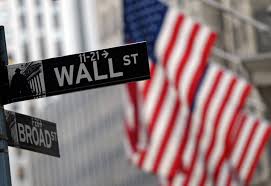S&P 500 Posts Its Worst Week in a Month Amid Concerns About Rising Rates, Trade Tensions

U.S. stock indexes may be near record highs, but concerns about rising interest rates and growing trade tensions led the benchmark S&P 500 index to post its worst week in a month.
The S&P 500 closed the week down about 1%, hardly an alarming decline but some investors began expressing concerns about the risk of inflation as bond yields rose to their highest levels since 2011. Higher rates can kill stock rallies because they make bonds more competitive investments than stocks and because they make debt more expensive to companies seeking to borrow money.
Most of the declines came after Federal Reserve Chair Jerome Powell indicated on Wednesday that more interest rate increases could be coming. Bond yields rose higher on Friday after jobs data showed the unemployment rate fell to 3.7%, fueling concerns that demand for workers could cause wages to increase. That in turn caused the S&P 500 to lose nearly 2% in the past two days.
“Equities will have no choice because if they don’t remain competitive with the risk-free rate of return people will stop buying them anyway and they will start going into bonds,” Walter Zimmerman, an analyst at ICAP told Reuters. “How does the stock market adjust for that? By lowering the price.”
Some of the biggest declines came in technology shares, which have led the U.S. stock market’s rally in 2018. The Nasdaq 100 Index, which is weighted with big-tech names, fell 3% this week as investors prepared for an escalation is a trade dispute between the U.S. and China. Companies like Apple rely on China for suppliers as well as revenue. Apple has fallen more than 3% in the past two days.
Other so-called FANG stocks—including Facebook, Netflix and Alphabet—closed the week lower Amazon also fell 5.7% this week after the company agreed to increase its minimum wage for warehouse workers to $ 15 an hour.
“It’s more trade worries than anything else because these companies, they either sell a lot to China or produce a lot in China,” said Matt Maley, equity strategist at Miller Tabak + Co. told Bloomberg.
